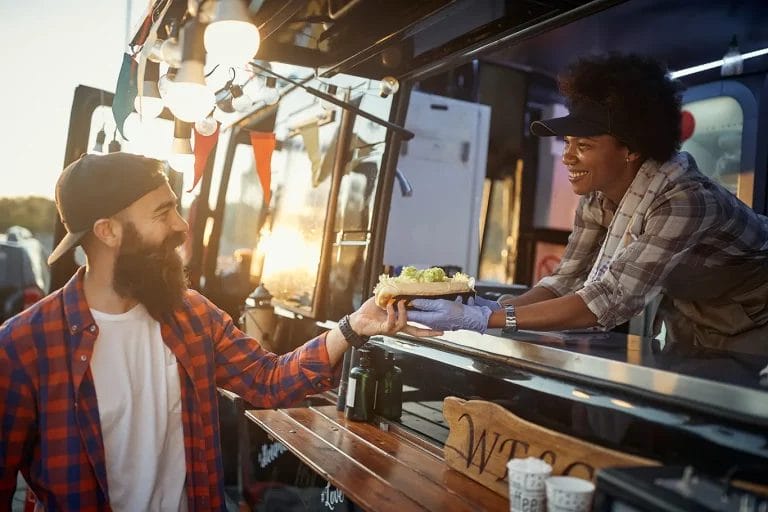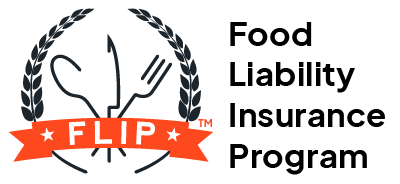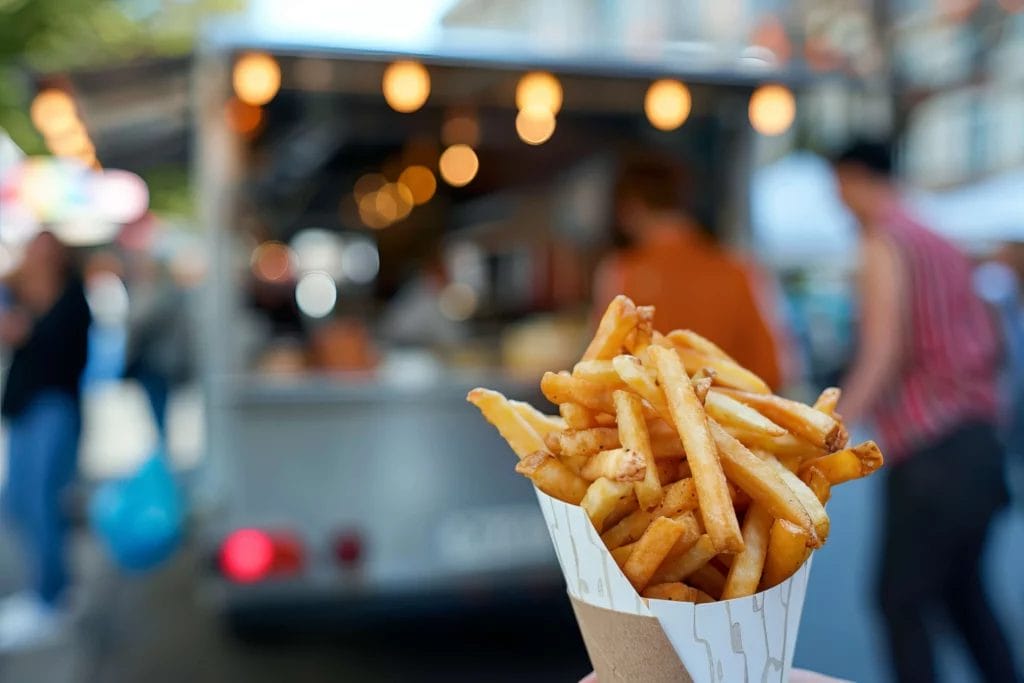Last Updated: January 16, 2025
When it comes to operating a responsible business, food truck insurance is just one piece of the puzzle. After all, just because you have a safety net, it doesn’t mean you want to fall! Risk prevention is your first line of defense.
Learn about these real-world examples and how you can avoid them with proper planning and a proactive approach.
5 Real-World Food Truck Insurance Claim Examples (and How to Avoid Them)
Wrong Order Leads to Allergic Reaction
A food truck owner accidentally gave shrimp fajitas to a customer who ordered chicken. Unfortunately, the customer had a shellfish allergy and required a trip to the emergency department after one bite. The food truck owner was held liable for the medical bills.
Claim amount: $5,540
How to Avoid It
Food allergies are one of the three most common risks for food trucks! Always double-check orders against tickets before serving the customer. If you do serve items with high allergy risks, use color-coded cocktail toothpicks to more easily identify orders that could trigger an allergic reaction.
Broken Chair Causes Major Medical Costs
After getting her order, a customer sat in one of the folding chairs out front. It collapsed, causing her to fall hard on the concrete. The customer required major back surgery and suffers chronic pain from her injuries. She sued the food truck owner for expenses and damages.
Claim amount: $400,927
How to Avoid It
Add free-standing items (e.g., chairs and tables) to your daily food truck inspection checklist to ensure they’re safe and sturdy. Check for missing screws, wobbly legs, and bent frames.
Contaminated Food Complications
A small piece of metal from a broken shelf accidentally fell into the hamburger meat while a staff member was mixing it and went unnoticed. An unlucky customer ate the contaminated burger and needed surgery to remove the metal shard from their stomach. The business was held responsible for the bill.
Claim amount: $21,979
How to Avoid It
Clean and inspect shelving regularly and check closely for signs of wear and tear. Opt for stainless steel shelving that’s less likely to break to avoid food contamination issues.
Generator Theft
After taking his food truck out of storage, a Tennessee business owner noticed his generator was missing. He needed it to power his truck, and it was also an essential part of his state-approved floor plan, making it mandatory for him to operate.
Claim amount: $1,350
How to Avoid It
Lock and secure all entry points and stow all valuables inside before parking or storing your food truck. Deter thieves with camera and security systems, and store your truck and gear at a secure facility.
Broken Window Causes Head Injury
A customer leaned into a food truck window to retrieve their order. The latch failed and the window slammed down on the customer’s head, causing a wound and a severe concussion. The hospital bills, follow-up visits, and lost wages turned into a hefty claim.
Claim amount: $156,346
How to Avoid It
Conduct regular maintenance including the vehicle itself and the equipment, doors, and windows. Make sure hinges are well-oiled and latches function properly. For extra support, brace sliding windows open with a sturdy dowel rod.

How to Protect Your Food Truck
The average general liability claim for FLIP customers is $6,271. A claim like that would take a big bite out of your profits!
Keeping up with maintenance, food safety protocols, and best practices can prevent accidents and save you thousands of dollars in the long run. Be proactive! Use this checklist to evaluate your food truck for any potential risks.
Unfortunately, sometimes accidents happen no matter how cautious you are. From freak windstorms to theft, there are plenty of food truck risks that can result in a claim.
Protecting your business with food truck insurance can save you from paying out of pocket so you can keep on cooking with confidence.
FAQs About Food Truck Claims
What Should I Do if I Receive a Claim Against My Food Truck?
If you receive a claim, the first thing you should do is contact your insurer. FLIP makes the claims process as quick and simple as possible:
- Log into your user dashboard
- Click “File a Claim”
- Fill out the requested information
- A claims adjuster will get in touch soon to help find a resolution
You can also contact us at 1.844.520.6992 to make a claim, follow up, or ask questions.
What Documentation Should I Keep to Support My Insurance Claims?
Save any documentation relating to your claim, including (but not limited to):
- Police reports
- Names and contact info for all involved parties, including witnesses
- A detailed description of the incident, including date, time, and location
- Pictures of the incident
- Receipts for stolen items or repair costs
How Does Employee Training Impact My Liability Coverage?
Many food truck insurance policies require the insured and all employees to complete food safety training to qualify for coverage. Even if your insurance doesn’t require employee training, most states mandate that anybody who works in a food business must complete safety courses.

Lindsey Fliger
Ohio-based copywriter Lindsey Fliger leverages her experience as a lifelong foodie, dedicated home chef, and very decent baker. She holds a bachelor’s in English from Kent State University and a master’s in English Literature from The University of Akron. Before Veracity, she wrote about everything from kitchen tools to decadent wines at Zulily.
Ohio-based copywriter Lindsey Fliger leverages her experience as a lifelong foodie, dedicated home chef, and very decent baker. She holds a bachelor’s in English from Kent State University and a master’s in English Literature from The University of Akron. Before Veracity, she wrote about everything from kitchen tools to decadent wines at Zulily.
JoAnne understands that starting and operating a business takes a tremendous amount of time, dedication, and financial resources. She believes that insurance is the single best way to protect your investment, business, and personal assets.

